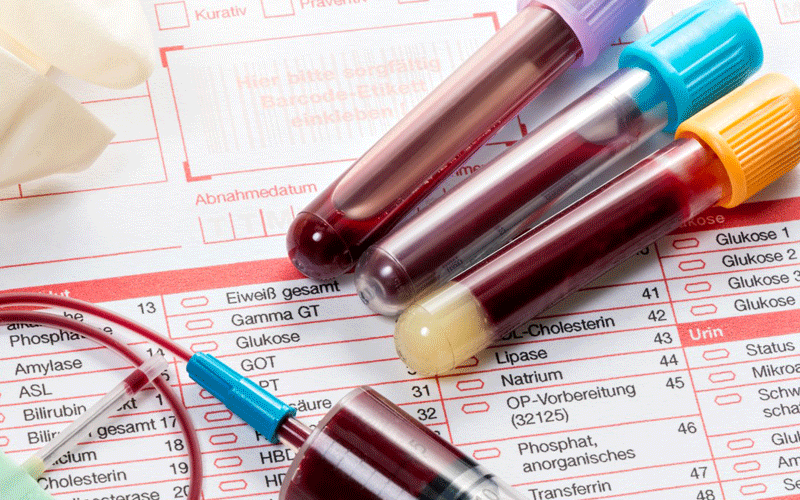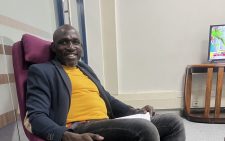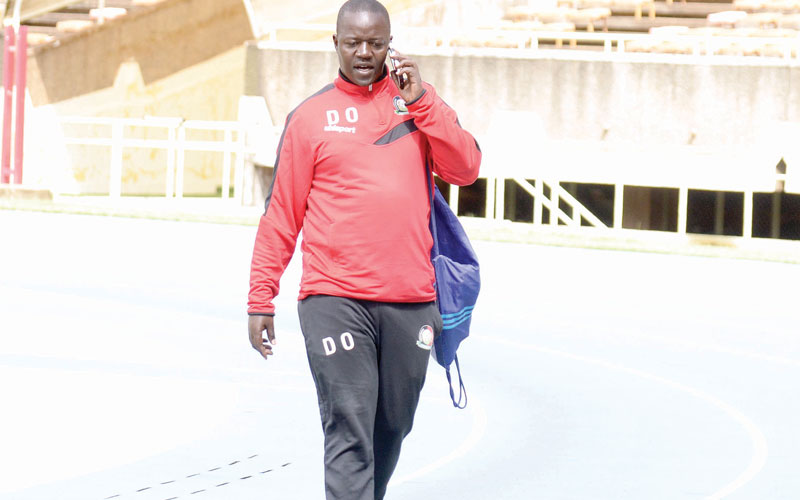Bridge gap in care, cancer patients, caregivers say

by Harriet James
@harriet86jim
For Benda Kithaka, the executive director Kilele Health, 2017 is a year she will never forget. During the 100 days’ doctors’ strike, the family received devastating news that her grandfather was diagnosed with Kaposi’s sarcoma, a type of cancer that forms in the lining of blood and lymph vessel, at the age of 82 years.
“My grandfather had been told he had only six months to live. But he lived on for another one year and six months,” narrates Benda.
It was a hard time navigating treatment with only National Hospital Insurance Fund (NHIF) card in the private sector, when other cancer patients in public hospitals were waiting for the strike to end. Her family’s connection with oncologists and her advocacy skills made it possible for her grandfather to get treated in Nairobi Hospital during the strike.
“It was hard as a family coping with the knowledge that we were facing a life threatening disease; and even though I have been in this field for over 10 years now, the news that a loved one is going through this journey takes a toll on the family,” says Benda.
Quality of care
“But the biggest challenge for me was watching the after effects of the treatment on him. Watching his mental wellness deteriorate, and all of us assuming it was old age was tough. Before I made the connection of the memory loss to the invasive cancer treatment, it was too late for any meaningful interventions,” she recalls.
It is a painful lesson she carries even as she does her work today at Kilele Health, an organisation formed to improve the quality of life for cancer patients, survivors and their caregivers.
“Cancer takes a toll, not just on the patient’s physical wellbeing, but on spiritual and emotional health. I have seen female cancer survivors abandoned by the immediate family members — a husband leaving after the diagnosis; some facing social stigma even though they are treated and recover — because cancer is often seen as a death sentence,” she explains.
Benda adds that the financial burden from the high cost of treatment is also another source of the stigma.
“Sometimes people run away from constant requests for financial support. In many cases the family sells assets to get their loved one to get treatment, which can impoverish them,” she continues.
Report by the Global Cancer Observatory in 2020 indicates an estimated 19.3 million new cancer cases and almost 10 million cancer deaths occurred in 2020.
Kenya has made great strides in the last 10 years alone. From having no cancer policy before 2010, to having a cancer policy, cancer control strategy, and cancer screening, and treatment guidelines. More doctors are now training as oncologists and have a more deliberate inclusion of patient advocacy groups in policy and care planning discussions. The government too is investing more in prevention and access to treatment including NHIF inclusion of Cancer in the Care Package and inclusion of Human Papillomavirus (HPV) Vaccination included in Routine Immunisation.
‘This year, more efforts have been placed in prevention and over 10,000 health volunteers have been trained to educate people on the early stages of cancer. When it comes to screening, HPV testing has been rolled out in 25 counties. An e-learning platform was also launched this year dubbed M-saratani for basic modules of cancer prevention at primary health care level,” says Dr Andrew Odhiambo medical oncologist Nairobi Radiotherapy and cancer centre. However, the sad reality is that in many low and middle income countries such as Kenya, the financial burden is still a strain on most families.
Most cancer cases are diagnosed at an advanced stage, when treatment options are limited and families make huge sacrifices, often with poor results. Households that lack insurance cover are the most affected as such news plunges them to poverty as they have to sell all they have to access health care.
“Several patients are unable to complete the prescribed full course treatment due to personal financial bankruptcy, most patients end up relying on community fundraising from friends, family and well-wishers to cover the high cost of treatment, which has led to some patients forgoing the treatment all together hence increased incidence of poor prognostic patterns,” explains Dr Catherine Nyongesa-Watta, an oncologist.
Noticing this gap, Sheila Chebet, a social worker, and her friends at Cancer friends of Hope Organisation are assisting in paying NHIF for needy cancer patients in collaboration with the social work office at Kenyatta Hospital.
“We also have bi-monthly support group meetings to encourage patients and caregivers. We will be holding medical camps, every three months at Kibera SDA Church for cancer screening and to promote early detection of cancers,” she says.
While she has taken her role to close the gap, she recommends the government looks into a wholesome healthcare provision for cancer patients.
“There is need to have a better response strategy for emergency cancer patients, like those bleeding severely from cervical cancer. We lost one patient last year who was bleeding profusely due to the bureaucratic procedures. She needed blood transfusion, but she was not attended to and by the following day, her blood level was severely low, she passed on. This could have been prevented with better care,” she says.
Wilson Mosbey, a social worker, says it is tough to see patients wait a long time to get services such as CT scan /MRI, mostly in public hospitals.
“A good number of patients also lack accommodation facilities when they come to Nairobi for treatment, thus some have to sleep in hospital corridors. Well, the care is improving, albeit slowly more can be done. Patients also experience poor family support, as some give up on the prolonged sickness and constant costs. Some families even believe the patient will die anyway so no need to drain family resources,” he notes.
When it comes to gaps in terms of gender, Mosbey notes that women have better health seeking habits than men.
“It is easier to exercise prevention on their part than men. Women also take follow up sessions seriously than men. They will come for check-up earlier and more regularly and also open up about their condition more easily while men are closed and require deeper prompting to open up. Men present at the hospital when the disease is at advanced stages than women. There are many NGOs supporting female cancer patients, while for men it is almost non-existent or very few,” he notes.
He says hospitals and health care providers give special attention to cancer care; by offering more psychosocial support, lowering charges such as consultation fees, tests, imaging, etc.
“Alternatively, NHIF should consider covering more costs including brachytherapy, blood tests, echocardiogram, and ultrasound to enable patients, especially needy ones access these services. I would also recommend other organisations chip in,” he continues.
Changing mindsets
Milicent Kagonga founded Symbols of Hope Organisation after she was diagnosed with cervical cancer. She faced challenges such as finding blood and a place to sleep and even transport from where she stayed to the hospital.
“My family didn’t give me the required support. I also didn’t have insurance and paying for treatment was an issue,” she recalls.
During her treatment,there was no guidance or social services at KNH. Consequently, she was not able to complete her treatment, which comprised six cycles of chemotherapy, 25 cycles of radiotherapy and three cycles of brachytherapy.
“Right now social workers go out of their way to look for someone to pay for the patients’ treatment or place you under a scheme where you can loan money and be treated,” she notes.
Sadly, most machines are not working and she urges the government to look into this. “Often, the brachytherapy machine is not working in Kenyatta which means one has to go to Nairobi Hospital, which costs Sh40,000 per session,” she explains.
To assist some of the patients, Millicent hosts those who travel from other counties to access treatment.
“To treat cancer is one thing and surviving it is another. You can finish your treatment, but still can’t find employment. It’s high time that the government gives us space to share our journey and change the mind-sets of people regarding cancer,” she says.








